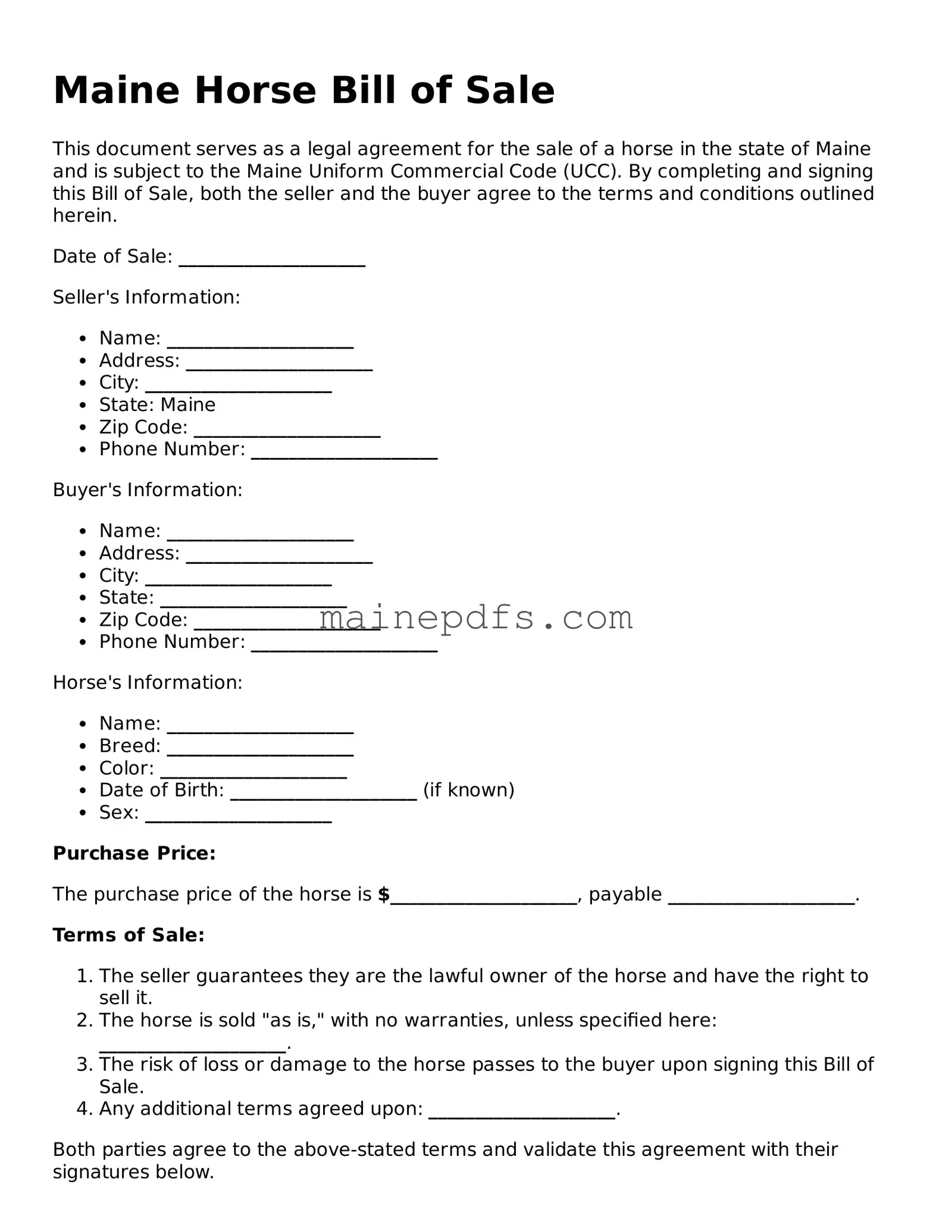The Vehicle Bill of Sale form shares its foundational purpose with the Maine Horse Bill of Sale, serving as a vital document in the sales transaction of a vehicle. Both documents legally record the details of the sale, including the identification of the seller and buyer, a description of the item being sold (a horse in one case, a vehicle in the other), and the agreed-upon sale price. Each acts as a receipt for the transaction and is indispensable for the official transfer of ownership, ensuring that the transaction complies with state regulations. While one pertains to equine sales, the other addresses vehicle transactions, yet both underline the seriousness and legal importance of transferring property from one party to another.
Similarly, a Firearm Bill of Sale functions much like the Maine Horse Bill of Sale, only it documents the sale of a firearm instead of a horse. It typically includes detailed information such as the make, model, and serial number of the firearm, alongside seller and buyer information, sale price, and date of sale. This document is crucial for the lawful sale and ownership transfer of firearms, ensuring both parties’ understanding and agreement to the terms. It assures a record of the transaction for legal and personal records, mirroring the horse bill of sale's role in providing documentary evidence of a lawful exchange.
A General Bill of Sale serves a broader purpose but is fundamentally similar to the Maine Horse Bill of Sale in that it can be used to document the sale of various types of personal property — from electronics to furniture, and anything in between. It also captures essential details of the transaction, including the seller's and buyer's information, a description of the item sold, the sale price, and the date of sale. This versatility makes the General Bill of Sale a useful document for a wide range of sales transactions, functioning similarly to the Maine Horse Bill of Sale by providing a legal record that supports the change of ownership.
An Artwork Bill of Sale could be considered a close relative of the Maine Horse Bill of Sale, as it serves a similar purpose in the niche area of art transactions. This document records the sale of artwork, noting the piece's creator, its authenticity, and any important details particular to the artwork, such as medium, dimensions, and provenance. The seller and buyer details, along with the price and date of sale, are also documented. For collectors and artists, this bill of sale is a critical record that supports the legitimacy of the ownership transfer, much like how the Maine Horse Bill of Sales supports those in equine sales.
Lastly, the Business Bill of Sale is conceptually parallel to the Maine Horse Bill of Sale, although it primarily concerns the sale of an entire business or a portion of its assets. This document outlines the specifics of the transaction, listing the business assets being sold, including physical assets, intellectual property, and goodwill, among others. It also details the buyer and seller information, sale price, and transaction date. The Business Bill of Sale is essential for recording the sale and transfer of business assets, ensuring that both parties are legally protected in a manner that’s fundamentally akin to the sales process detailed in the Maine Horse Bill of Sale.

